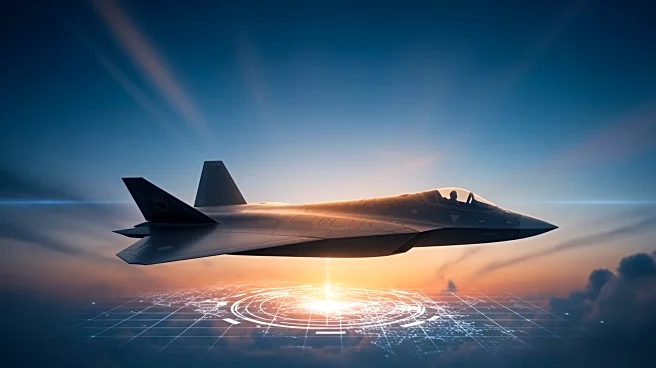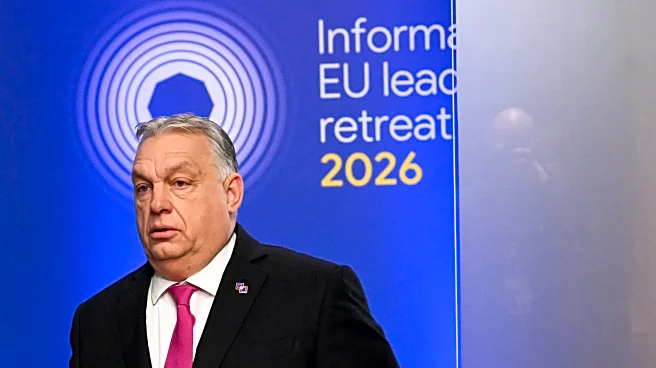What's Happening?
Israel has expressed confidence in maintaining its military superiority in the Middle East despite the United States' plan to sell F-35 warplanes to Saudi Arabia. According to a government spokesperson, Israel expects to continue accessing advanced U.S.
weaponry, ensuring its qualitative military edge in the region. This assurance comes as U.S. law guarantees Israel's military advantage, with Israel currently being the only Middle Eastern country operating the F-35, one of the most advanced warplanes. The spokesperson emphasized the longstanding understanding between the U.S. and Israel regarding Israel's defense capabilities, stating that this commitment remains firm. The announcement of the Saudi sale was made earlier this week by President Trump, and it marks a significant development in U.S.-Saudi relations.
Why It's Important?
The sale of F-35 warplanes to Saudi Arabia is a pivotal moment in Middle Eastern geopolitics, potentially altering the balance of military power in the region. For Israel, maintaining its qualitative military edge is crucial for its national security and regional influence. The assurance from the U.S. that Israel will retain access to more advanced weaponry underscores the strategic partnership between the two nations. This development could impact U.S. foreign policy, as it navigates relationships with both Israel and Saudi Arabia, two key allies with differing regional interests. The sale also reflects broader U.S. intentions to bolster Saudi Arabia's defense capabilities amid ongoing regional tensions.
What's Next?
As the sale progresses, Israel will likely continue diplomatic engagements with the U.S. to ensure its military superiority is preserved. The Israeli government may seek further assurances or additional advanced weaponry to maintain its edge. Meanwhile, Saudi Arabia's acquisition of F-35s could lead to increased military cooperation with the U.S., potentially influencing regional dynamics. Observers will be watching for any shifts in Saudi-Israeli relations, especially given Saudi Arabia's interest in formalizing ties with Israel while advocating for a two-state solution with Palestinian independence.


















